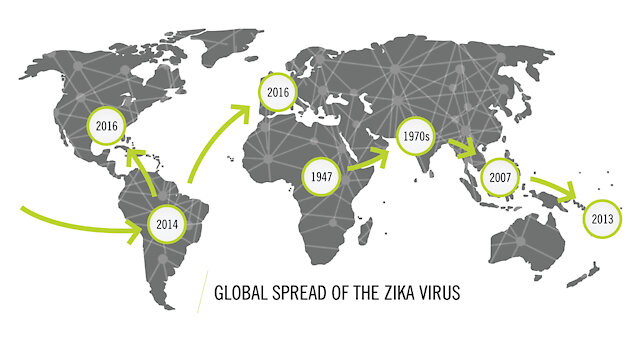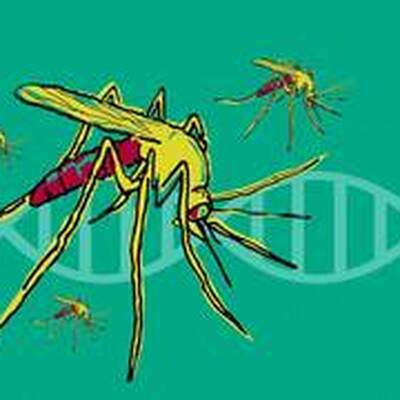Zika virus: how it is transmitted and what are the risks
الجسم
The Zika virus is transmitted by a mosquito bite of the genus Aedes: a mosquito bites an infected person, and when it bites another, it also injects the virus. The disease is suspected to be transmitted by blood transfusion and sexually. A case was recently reported in Texas of a person infected following sexual intercourse with a partner who had just returned from Latin America.
It is an infection caused by a virus discovered in the 1950s in Africa, where numerous outbreaks have been reported. In early February 2016, the Health Organization declared the Zika virus infection a global emergency due to its high potential for spread.
Symptoms are similar to dengue and chikungunya, other diseases transmitted by Aedes mosquitoes, although milder: low-grade fever, joint and muscle pain, skin rashes, conjunctivitis. A Zika virus infection could go unnoticed or be attributed to one of the other viruses.
Recent outbreaks of Zika virus fever outside Asia and Africa, epidemics in French Polynesia and New Caledonia, and its developing presence in the Americas show that this virus has the potential to spread to areas where mosquitoes are present. Zika virus vaccine research is still in process.
The disease caused by the Zika virus often has no symptoms or manifests itself with rather modest symptoms, not sufficient to require a medical check-up. When Zika virus symptoms are present, they appear from a few days to a week after contracting the infection and include:
- F intoxicated;
- E skin rash (sometimes itchy red spots);
- Joint pains;
- C conjunctivitis (red eyes);
- Muscle pains.
Pregnant women should also report this circumstance during antenatal visits. Diagnosis of the disease is based on symptoms and, at least currently, on knowledge of a visit to places where the disease is endemic in the two weeks preceding the disease.
Treatment of symptoms requires the use of acetaminophen against fever and pain. It is good to drink fluids and rest until the symptoms resolve. During about a week, the virus is found in the patient's blood, and during this time, the disease can be transmitted.
What symptoms does the Zika virus manifest itself with?
People affected by the disease may present with fever, rash, muscle and joint pain, and conjunctivitis. Symptoms last a few days, at most a week, and are not particularly significant in intensity.
Simultaneously with the Zika virus epidemic in Brazil, there has been an increase in children born with microcephaly: the suspicion is that contracting the disease during pregnancy can compromise the fetus's health. Children with microcephaly have a smaller head than normal, with possible brain development abnormalities.

A vaccine against the Zika virus is currently not available. It is good to implement standard precautionary measures against insect bites. Particular attention must be paid to pregnant women who are not advised to travel to countries already affected or considered at risk.
The Zika virus epidemic is limited to the presence of the specific vector of the virus, the Aedes Aegypti mosquitoes. If there are no mosquitoes where the virus completes part of its life cycle, it is unlikely to think of its spread.












تعليقات